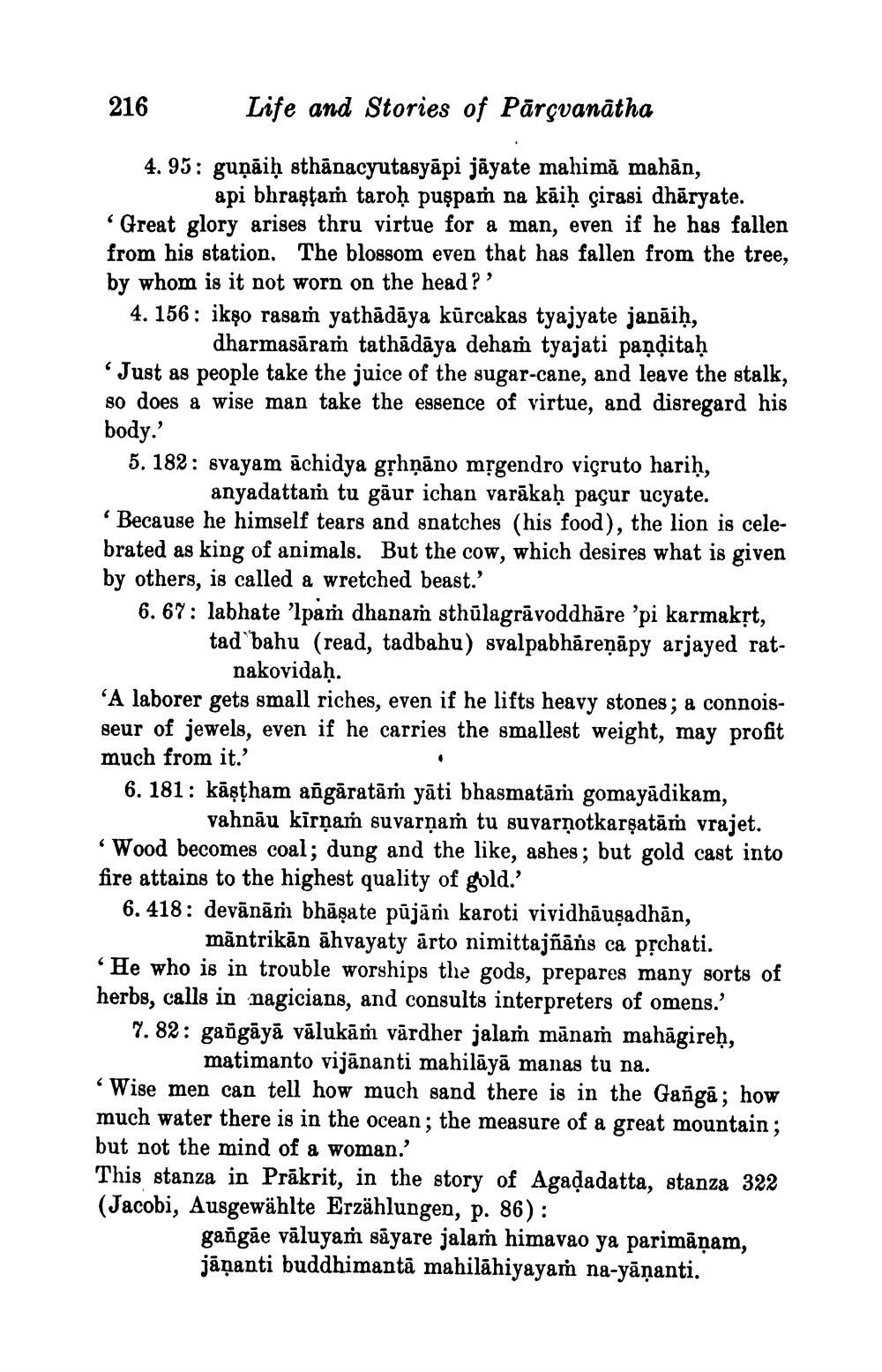________________
216
Life and Stories of Pārçvanātha
4.95: guņāiḥ sthānacyutasyāpi jāyate mahimă mahān,
api bhraştam taroḥ puşpam na kāiḥ çirasi dhāryate. Great glory arises thru virtue for a man, even if he has fallen from his station. The blossom even that has fallen from the tree, by whom is it not worn on the head? 4. 156: ikạo rasam yathādāya kūrcakas tyajyate janāiḥ,
dharmasāram tathādāya dehań tyajati paņạitaḥ 'Just as people take the juice of the sugar-cane, and leave the stalk, 80 does a wise man take the essence of virtue, and disregard his body.' 5. 182: svayam achidya gļhạāno mrgendro viçruto hariḥ,
anyadattam tu gāur ichan varākaḥ paçur ucyate. 'Because he himself tears and snatches (his food), the lion is celebrated as king of animals. But the cow, which desires what is given by others, is called a wretched beast.' 6.67: labhate 'lpåṁ dhanam sthūlagrāvoddhāre ’pi karmakst,
tad bahu (read, tadbahu) svalpabhāreņāpy arjayed rat
nakovidaḥ. 'A laborer gets small riches, even if he lifts heavy stones; a connoisseur of jewels, even if he carries the smallest weight, may profit much from it.' 6. 181: kāştham angāratāṁ yāti bhasmatām gomayādikam,
vahnāu kīrṇaṁ suvarņas tu suvarņotkarşatām vrajet. Wood becomes coal; dung and the like, ashes; but gold cast into fire attains to the highest quality of gold.' 6.418: devānām bhāşate pūjām karoti vividhā uşadhān,
māntrikān āhvayaty ārto nimittajñāns ca prchati. “He who is in trouble worships the gods, prepares many sorts of herbs, calls in nagicians, and consults interpreters of omens.' 7.82: gañgāyā vālukām vārdher jalaṁ mānam mahāgireh,
matimanto vijānanti mahilāyā manas tu na. * Wise men can tell how much sand there is in the Gangā; how much water there is in the ocean; the measure of a great mountain; but not the mind of a woman.' This stanza in Prākrit, in the story of Agadadatta, stanza 322 (Jacobi, Ausgewählte Erzählungen, p. 86):
gañgāe vāluyam sāyare jalaṁ himavao ya parimāṇam, jāņanti buddhimantā mahilāhiyayam na-yāṇanti.




